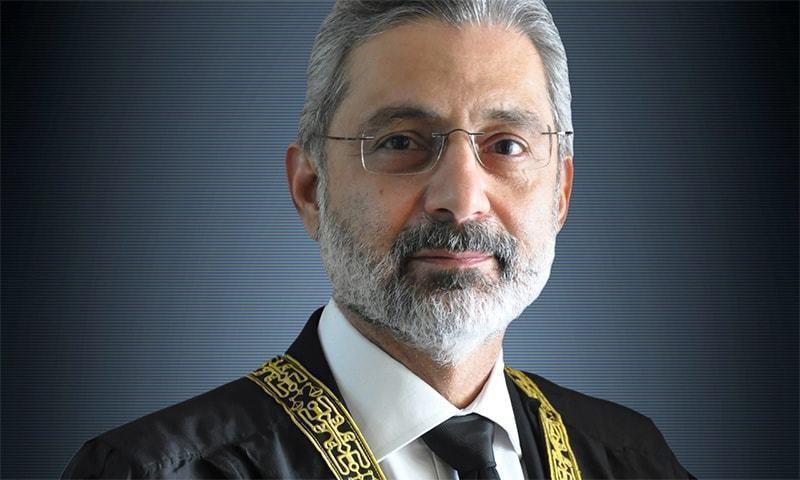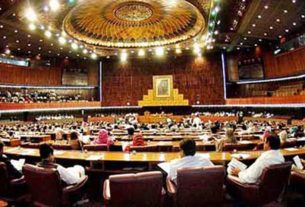ISLAMABAD: All the oceans of the world cannot wipe off the stain on a superior court judge if he were to face the indignity of going through proceedings before the Supreme Judicial Council (SJC) based on material collected illegally by the executive, argued a senior counsel on Monday while defending Justice Qazi Faez Isa in the reference sent by President Arif Alvi.
“This is a case of first impression and any leniency on part of the apex court will amount to giving the executive a licence to intimidate the superior judiciary,” warned senior counsel Muneer A. Malik.
The counsel was trying to persuade the court to quash the reference by arguing that the executive cannot be allowed to collect material against other branches of the state in an “illegal and unauthorised manner”.
“Will the slur be removed if we quash the reference,” observed Justice Umar Ata Bandial, who heads a 10-judge full court of the Supreme Court hearing a set of challenges to the filing of the presidential reference against Justice Isa.
Muneer Malik concluded his arguments on Monday while Hamid Khan, who represents the Supreme Court Bar Association (SCBA), is expected to commence his arguments on Tuesday.
Counsel concludes arguments before SC in reference against Justice Isa
Mr Malik pleaded before the court to quash the reference against Justice Faez Isa since it should have been filed by the President after applying his mind or alternatively, on the cabinet’s advice.
“Since this was not done,” he contended, the reference will be “deemed to have been filed without jurisdiction”.
Mr Malik further argued that no allegation of misuse of authority had been levelled in the reference or any allegation that the petitioner was a benami owner of offshore properties or he misused his office for private gains or that his wife and children were his dependents.
“The case is also not rooted in any breach of section 116 of the Income Tax Ordinance (ITO), which deals with non-disclosure of properties in income tax returns,” he observed.
The SJC cannot make any declaration for breaching section 116 of ITO, the counsel said.
It would be anomalous, he added, if SJC recommends removal of a judge for breaching Section 116, but at the same time the tax authority exonerates the judge, he emphasised.
There was no allegation of money laundering or violation of the foreign exchange act against Justice Isa, Mr Malik said.
The reference was filed for collateral purpose and stemmed from “actual malice and ill-will against the petitioner judge” on account of the judgement on Faizabad sit-in.
The common objective was to ensure Justice Isa’s absence from the hearing on the review petition against the sit-in judgement, he alleged.
Although the offshore flats mentioned in the reference were purchased in 2004 and 2013, the filing barely a month after the review petitions and the observation that Justice Isa was not fit to be a judge was not just simply a coincidence, the counsel contended.
Likewise, he added, a “deliberate leaking” of the reference to the media was a calculated step to destroy the image of the judge among the public.
The counsel referred to an “audacious and gleeful press conference” of Dr Firdous Ashiq Awan, Special Adviser to the Prime Minister on Information, that time had come to hold the judiciary accountable since “they play out of the crease”.
The counsel referred to a rejoinder filed by Attorney General Anwar Mansoor before SJC. He described it as “betraying animosity” against the judge.
The counsel contended that since filing of a reference against a judge was serious business and an onerous duty for the President, he should not let his “personal animosity” pre-judge the matter, Mr Malik concluded.



